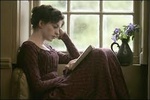Page 1 sur 4 • 1, 2, 3, 4 

 MrBrightsideEmpereur
MrBrightsideEmpereur
Quel est le point commun entre votre humble serviteur, Charlotte Brontë, Mark Twain, Virginia Woolf, Mme de Stael et Winston Churchill ?
http://mentalfloss.com/article/32099/7-people-who-hated-pride-and-prejudice


1. Charlotte Brontë
In 1848, 41 years after Austen’s death, Charlotte Brontë picked up Pride and Prejudice on the recommendation of friend and literary critic George Henry Lewes. Brontë, author of the grim “romance” Jane Eyre, wasn’t backwards about coming forward with her criticism: “Why do you like Miss Austen so very much? I am puzzled on that point,” she writes, explaining that she got the book after Lewes talked it up. “And what did I find? An accurate, daguerreotyped portrait of a commonplace face; a carefully-fenced, high-cultivated garden with neat borders and delicate flowers; but no glance of a bright, vivid physiognomy, no open country, no fresh air, no blue hill, no bonny beck. I should hardly like to live with her ladies and gentlemen in their elegant but confined houses.”
Two years later, Brontë took up the theme again, in a letter to another friend: “[A]nything like warmth or enthusiasm, anything energetic, poignant, heartfelt, is utterly out of place in commending these works: all such demonstrations the authoress would have met with a well-bred sneer, would have calmly scorned as outré or extravagant. She does her business of delineating the surface of the lives of genteel English people curiously well… [But] She no more, with her mind’s eye, beholds the heart of her race than each man, with bodily vision, sees the heart in his heaving breast. Jane Austen was a complete and most sensible lady, but a very incomplete and rather insensible (not senseless) woman.” Oh, snaps.
2. Winston Churchill
It's a little too strong to say that Winston Churchill hated Pride and Prejudice—Britain’s beloved Prime Minister seems to have found some comfort in the book as the Second World War ground on. But he did have some mild complaint about it: “What calm lives they had, those people! No worries about the French Revolution or the crashing struggle of the Napoleonic Wars. Only manners controlling natural passion as far as they could, together with cultural explanations of any mischances.”
3. Ralph Waldo Emerson
Bostonian poet and essayist Ralph Waldo Emerson, having read both Persuasion and Pride and Prejudice, bemoaned the fact that all anyone in the books seems to care about is money and marriage: “I am at a loss to understand why people hold Miss Austen’s novels at so high a rate, which seems to me vulgar in tone, sterile in artistic invention, imprisoned in their wretched conventions of English society, without genius, wit or knowledge of the world Never was life so pinched and so narrow. … Suicide is more respectable.”
4. Virginia Woolf
The Mrs. Dalloway writer, in a 1932 letter to a friend, had faint praise for Austen: “Whatever ‘Bloomsbury’ may think of Jane Austen, she is not by any means one of my favourites. I’d give all she ever wrote for half what the Brontës wrote—if my reason did not compel me to see that she is a magnificent artist.”
5. DH Lawrence
DH Lawrence, author of Lady Chatterley’s Lover (published in 1928 and coveted by schoolgirls everywhere ever since, or at least in the days before Gossip Girl), intensely disliked the England Jane Austen represented both in her novels and personally. In 1930, he wrote, “This again, is the tragedy of social life today. In the old England, the curious blood-connection held the classes together. The squires might be arrogant, violent, bullying and unjust, yet in some ways, they were at one with the people, part of the same blood-stream. We feel it in Defoe or Fielding. And then, in the mean Jane Austen, it is gone. Already this old maid typifies 'personality' instead of character, the sharp knowing in apartness instead of togetherness, and she is, to my feeling, English in the bad, mean snobbish sense of the word, just as Fielding is English in the good generous sense.”
6. Madame Anne Louise Germaine de Staël
This French-speaking Swiss writer, a great patron of the literary salon who lived contemporaneously with Jane Austen (they even died in the same year), pronounced Pride and Prejudice "vulgaire."
7. Mark Twain
But it was that great American man of letters, Mark Twain, who had the meanest thing to say about poor, dead Jane Austen and her books: “I often want to criticize Jane Austen, but her books madden me so that I can’t conceal my frenzy from the reader; and therefore I have to stop every time I begin. Every time I read Pride and Prejudice I want to dig her up and beat her over the skull with her own shin bone!”
Many thanks to Gary Dexter’s fabulous Poisoned Pens: Literary Invective from Amis to Zola for corralling a number of these quotes.
http://mentalfloss.com/article/32099/7-people-who-hated-pride-and-prejudice
 NitaEmpereur
NitaEmpereur
Fuis, Carlin, fuis.
(On va mettre Melville sur le Bon Coin après tes obsèques)
(On va mettre Melville sur le Bon Coin après tes obsèques)
_________________
A clean house is a sign of a broken computer.
 CasparProphète
CasparProphète
MrB, vous n'avez aucun goût (à part en matière canine). 
 doubledeckerSage
doubledeckerSage
MrBrightside a écrit:Quel est le point commun entre votre humble serviteur, Charlotte Brontë, Mark Twain, Virginia Woolf, Mme de Stael et Winston Churchill ?
1. Charlotte Brontë
In 1848, 41 years after Austen’s death, Charlotte Brontë picked up Pride and Prejudice on the recommendation of friend and literary critic George Henry Lewes. Brontë, author of the grim “romance” Jane Eyre, wasn’t backwards about coming forward with her criticism: “Why do you like Miss Austen so very much? I am puzzled on that point,” she writes, explaining that she got the book after Lewes talked it up. “And what did I find? An accurate, daguerreotyped portrait of a commonplace face; a carefully-fenced, high-cultivated garden with neat borders and delicate flowers; but no glance of a bright, vivid physiognomy, no open country, no fresh air, no blue hill, no bonny beck. I should hardly like to live with her ladies and gentlemen in their elegant but confined houses.”
Two years later, Brontë took up the theme again, in a letter to another friend: “[A]nything like warmth or enthusiasm, anything energetic, poignant, heartfelt, is utterly out of place in commending these works: all such demonstrations the authoress would have met with a well-bred sneer, would have calmly scorned as outré or extravagant. She does her business of delineating the surface of the lives of genteel English people curiously well… [But] She no more, with her mind’s eye, beholds the heart of her race than each man, with bodily vision, sees the heart in his heaving breast. Jane Austen was a complete and most sensible lady, but a very incomplete and rather insensible (not senseless) woman.” Oh, snaps.
2. Winston Churchill
It's a little too strong to say that Winston Churchill hated Pride and Prejudice—Britain’s beloved Prime Minister seems to have found some comfort in the book as the Second World War ground on. But he did have some mild complaint about it: “What calm lives they had, those people! No worries about the French Revolution or the crashing struggle of the Napoleonic Wars. Only manners controlling natural passion as far as they could, together with cultural explanations of any mischances.”
3. Ralph Waldo Emerson
Bostonian poet and essayist Ralph Waldo Emerson, having read both Persuasion and Pride and Prejudice, bemoaned the fact that all anyone in the books seems to care about is money and marriage: “I am at a loss to understand why people hold Miss Austen’s novels at so high a rate, which seems to me vulgar in tone, sterile in artistic invention, imprisoned in their wretched conventions of English society, without genius, wit or knowledge of the world Never was life so pinched and so narrow. … Suicide is more respectable.”
4. Virginia Woolf
The Mrs. Dalloway writer, in a 1932 letter to a friend, had faint praise for Austen: “Whatever ‘Bloomsbury’ may think of Jane Austen, she is not by any means one of my favourites. I’d give all she ever wrote for half what the Brontës wrote—if my reason did not compel me to see that she is a magnificent artist.”
5. DH Lawrence
DH Lawrence, author of Lady Chatterley’s Lover (published in 1928 and coveted by schoolgirls everywhere ever since, or at least in the days before Gossip Girl), intensely disliked the England Jane Austen represented both in her novels and personally. In 1930, he wrote, “This again, is the tragedy of social life today. In the old England, the curious blood-connection held the classes together. The squires might be arrogant, violent, bullying and unjust, yet in some ways, they were at one with the people, part of the same blood-stream. We feel it in Defoe or Fielding. And then, in the mean Jane Austen, it is gone. Already this old maid typifies 'personality' instead of character, the sharp knowing in apartness instead of togetherness, and she is, to my feeling, English in the bad, mean snobbish sense of the word, just as Fielding is English in the good generous sense.”
6. Madame Anne Louise Germaine de Staël
This French-speaking Swiss writer, a great patron of the literary salon who lived contemporaneously with Jane Austen (they even died in the same year), pronounced Pride and Prejudice "vulgaire."
7. Mark Twain
But it was that great American man of letters, Mark Twain, who had the meanest thing to say about poor, dead Jane Austen and her books: “I often want to criticize Jane Austen, but her books madden me so that I can’t conceal my frenzy from the reader; and therefore I have to stop every time I begin. Every time I read Pride and Prejudice I want to dig her up and beat her over the skull with her own shin bone!”
Many thanks to Gary Dexter’s fabulous Poisoned Pens: Literary Invective from Amis to Zola for corralling a number of these quotes.
http://mentalfloss.com/article/32099/7-people-who-hated-pride-and-prejudice


Oh, thanks M B. I really feel better now
_________________
If you're not failing every now and again it's a sign you're not doing anything very innovative (Woody Allen)
La boutique de LolaDragibus : des petites choses futiles et inutiles pour embellir la vie (p'tites bricoles en tissu, papier, crochet....) : venez y jeter un oeil 😊
 NadejdaGrand sage
NadejdaGrand sage
MrB, mon héros ! 
 CasparProphète
CasparProphète
Je ne suis guère étonné que C. Brontë, Churchill ou Twain n'aiment pas Austen, ça semble presque logique.
 MrBrightsideEmpereur
MrBrightsideEmpereur
C'est vrai... que des écrivains talentueux aiment Austen, c'était trop beau...
< /Troll >
< /Troll >
 CasparProphète
CasparProphète
Stop trolling and go back to your beloved (but unreadable) Melville. 

 MrBrightsideEmpereur
MrBrightsideEmpereur
Too many complicated words? I understand the appeal of chick lit, then  One has to start somewhere, before reading adult novels
One has to start somewhere, before reading adult novels 
 One has to start somewhere, before reading adult novels
One has to start somewhere, before reading adult novels  CasparProphète
CasparProphète
I stick to YA literature and leave you to all your unredable Americans: Faulkner, Pynchon, Delillo... but I do love Gore Vidal (easy to read).
 LizdarcyFidèle du forum
LizdarcyFidèle du forum
No comment! :livre:
 CasparProphète
CasparProphète
Lizdarcy, viens à ma rescousse!
 doubledeckerSage
doubledeckerSage
Lizdarcy a écrit:No comment! :livre:
_________________
If you're not failing every now and again it's a sign you're not doing anything very innovative (Woody Allen)
La boutique de LolaDragibus : des petites choses futiles et inutiles pour embellir la vie (p'tites bricoles en tissu, papier, crochet....) : venez y jeter un oeil 😊
 CasparProphète
CasparProphète
doubledecker: choisis ton camp!
 doubledeckerSage
doubledeckerSage
Ah mais il est clairement choisi mon camp: c'est le pseudo qui m'a fait marrer, je maintiens:Austen me gave mais rien de personnel, je n'aime pas ce style... et je vais m'enfoncer un peu plus: je n'aime pas Austen ET en plus je dévore la chick lit à pleines dents! J'ai 3 ou 4 fournisseurs officiels sur Jersey!Caspar Goodwood a écrit:doubledecker: choisis ton camp!
_________________
If you're not failing every now and again it's a sign you're not doing anything very innovative (Woody Allen)
La boutique de LolaDragibus : des petites choses futiles et inutiles pour embellir la vie (p'tites bricoles en tissu, papier, crochet....) : venez y jeter un oeil 😊
 CasparProphète
CasparProphète
Chacun ses (mauvais) goûts.  D'ailleurs il y a eu au moins deux fils, dont un lancé par moi sur "les classiques qui nous tombent des mains". On pourrait peut-être les déterrer?
D'ailleurs il y a eu au moins deux fils, dont un lancé par moi sur "les classiques qui nous tombent des mains". On pourrait peut-être les déterrer?
 MrBrightsideEmpereur
MrBrightsideEmpereur
Caspar Goodwood a écrit:I stick to YA literature and leave you to all your unredable Americans: Faulkner, Pynchon, Delillo... but I do love Gore Vidal (easy to read).
:shock: Illisible ? Tu n'as jamais lu une nouvelle de Faulkner alors (A Rose for emily, Barn Burning, That Evening Sun). Ou Falling Man ou White Noise de DeLillo (sublime satire de la société américaine, des passages à hurler de rire !)
 CasparProphète
CasparProphète
Disons difficile, mais je veux bien croire qu'il y a des nouvelles plus faciles à lire. Delillo, je ne peux pas, çe me rebute, je sens sa suffisance suinter des pages (sorry!) et Pynchon, je décroche au bout de deux paragraphes.
 SimgajulNeoprof expérimenté
SimgajulNeoprof expérimenté
Ils n'ont peut être pas aimé Pride and Prejudice mais ils ont surement adoré sense and sensibility... 
 CasparProphète
CasparProphète
Bien vu! Et Jane Austen aurait certainement détesté les Brontë et Mark Twain.
 LizdarcyFidèle du forum
LizdarcyFidèle du forum
"The key to Jane Austen's fortune with posterity has been in part the extraordinary grace of her facility ..."
Henry James.
Moi, ça me suffit!
Henry James.
Moi, ça me suffit!

 NitaEmpereur
NitaEmpereur
Cela dit, et bien qu'il soit dans l'erreur, Mark Twain m'a fait beaucoup rire...
_________________
A clean house is a sign of a broken computer.
 MrBrightsideEmpereur
MrBrightsideEmpereur
Pourquoi, elle aussi avait un problème avec les mots compliqués ? 
 MrBrightsideEmpereur
MrBrightsideEmpereur
Lizdarcy a écrit:"The key to Jane Austen's fortune with posterity has been in part the extraordinary grace of her facility ..."
Henry James.
Moi, ça me suffit!
Et donc en plus elle est facile ? :shock:
 CasparProphète
CasparProphète
Henry James aimait Jane Austen, je ne suis pas surpris, et c'est un de ses personnages qui le dit.
Page 1 sur 4 • 1, 2, 3, 4 

Permission de ce forum:
Vous ne pouvez pas répondre aux sujets dans ce forum



